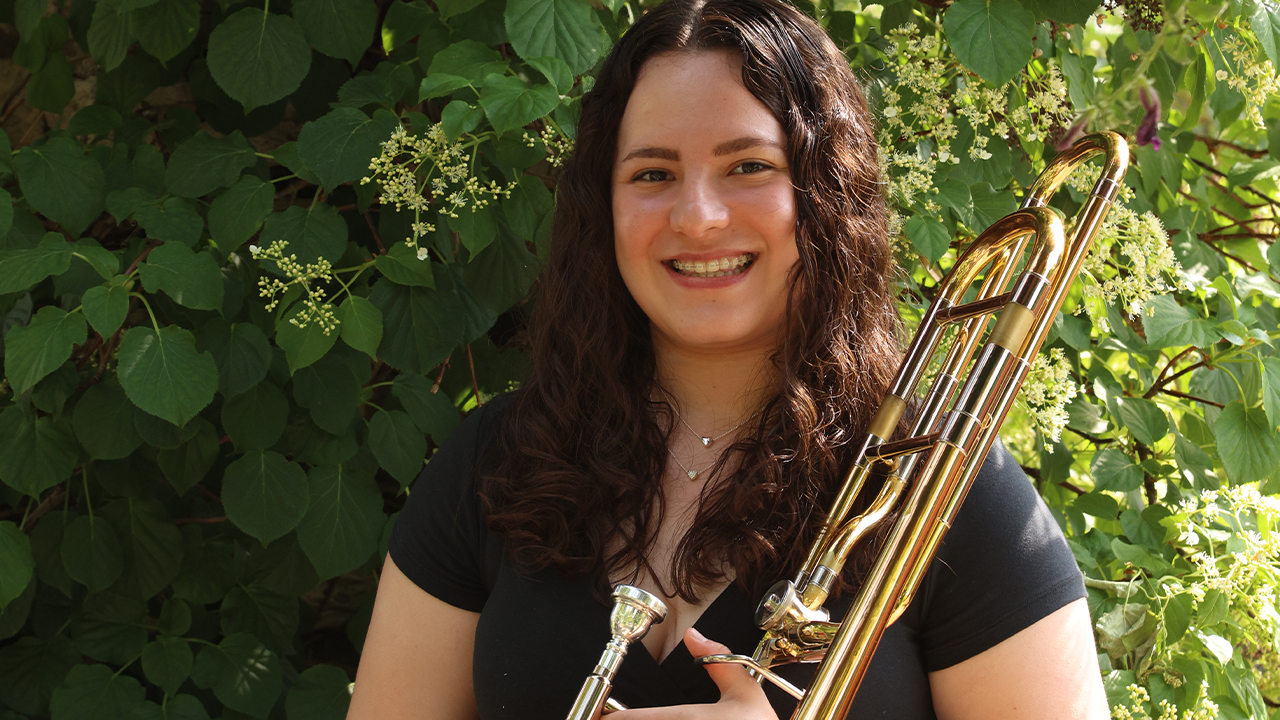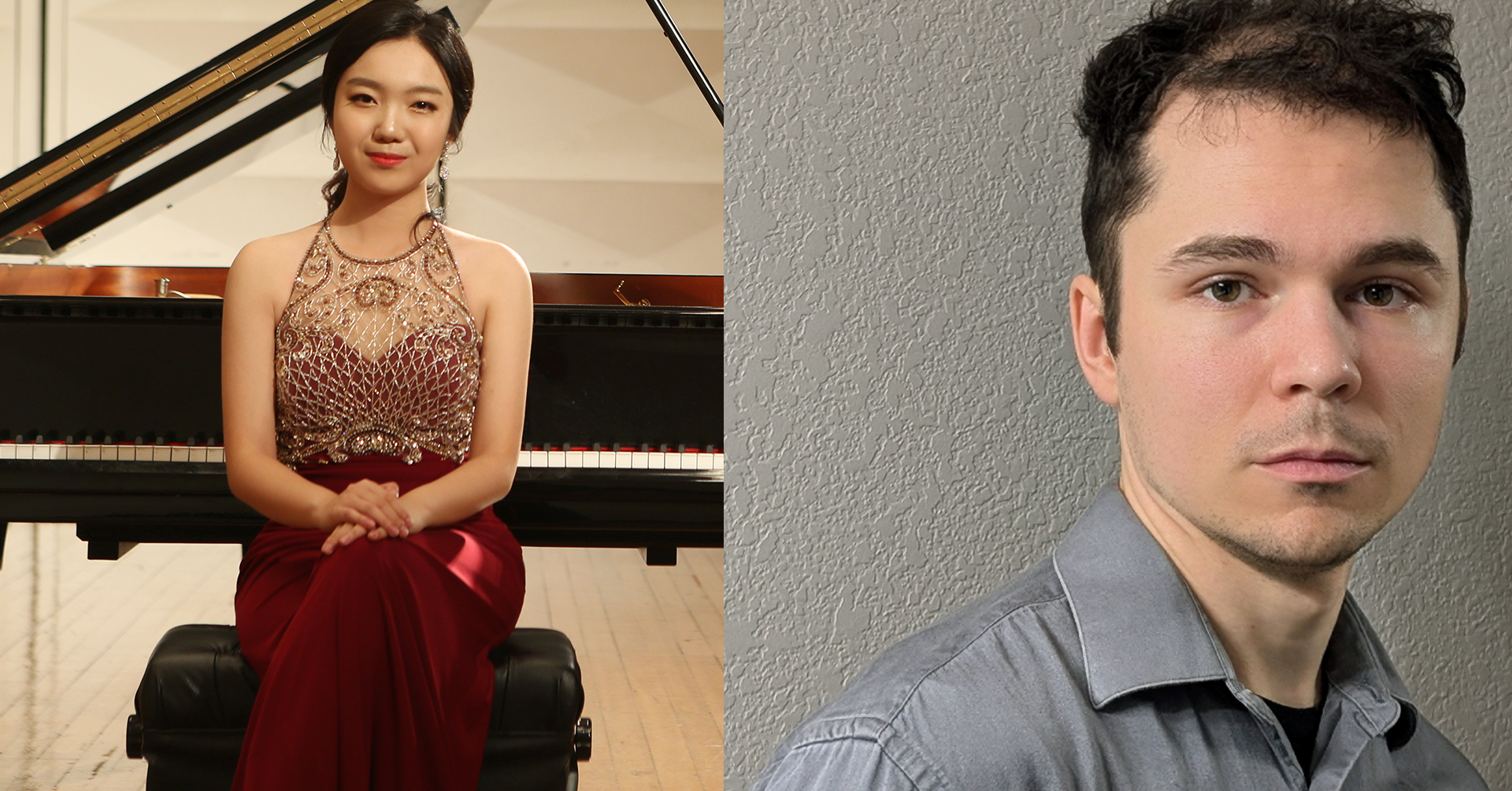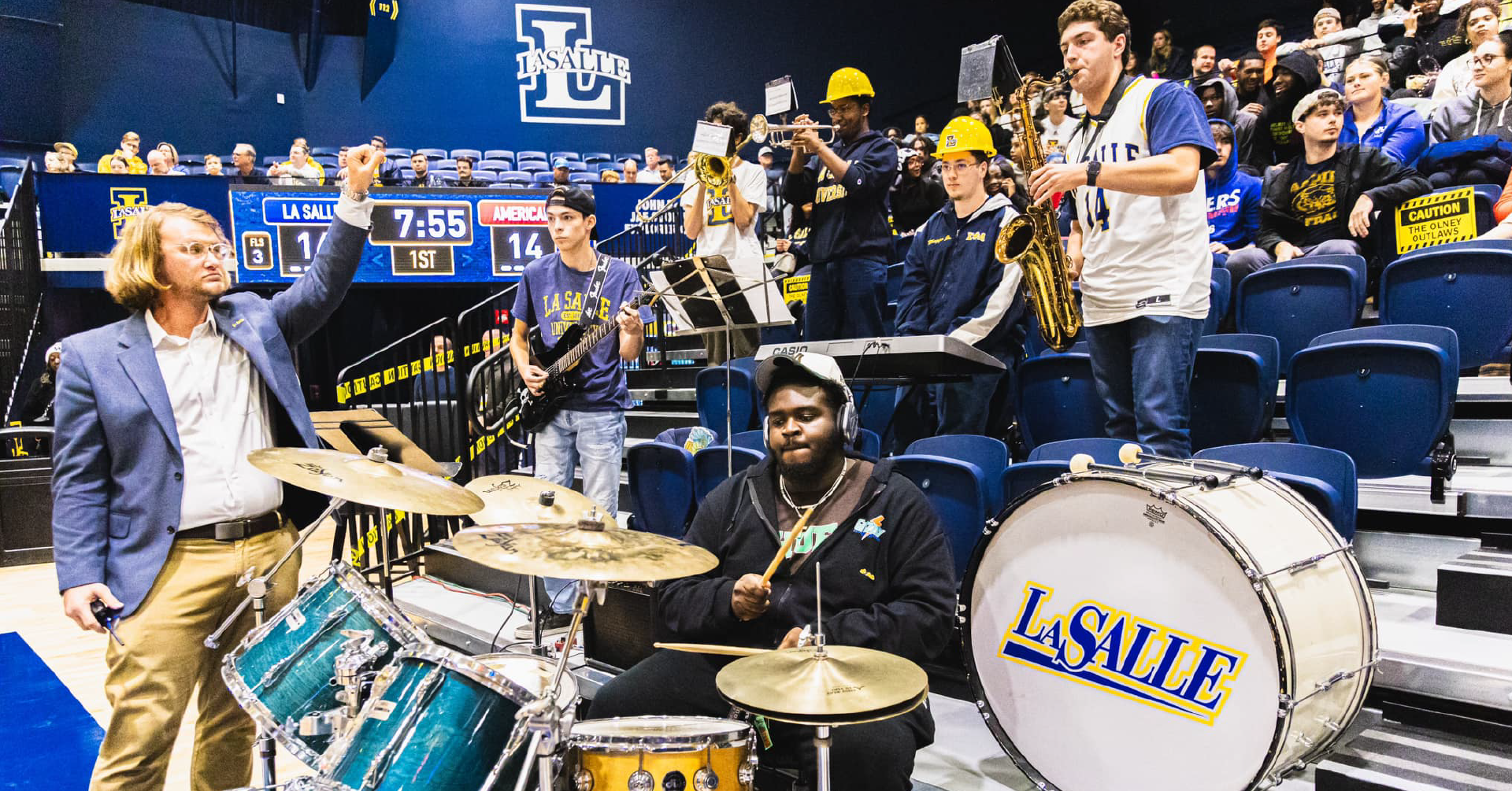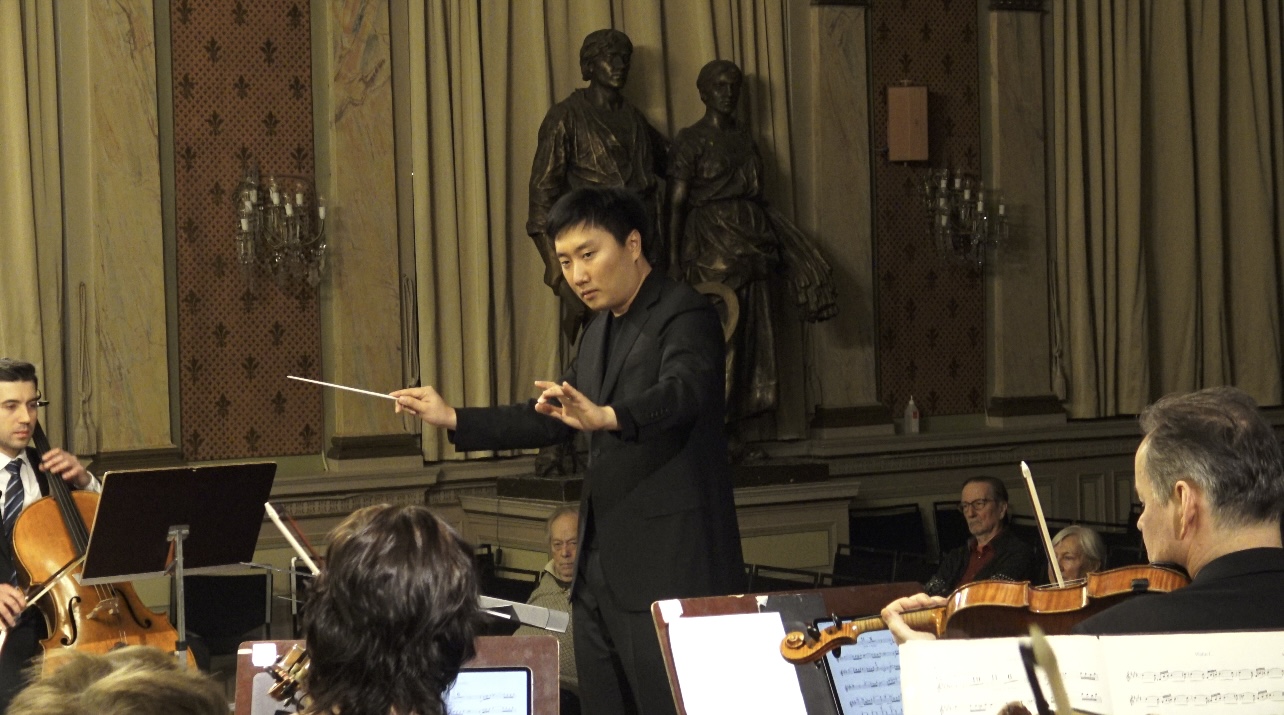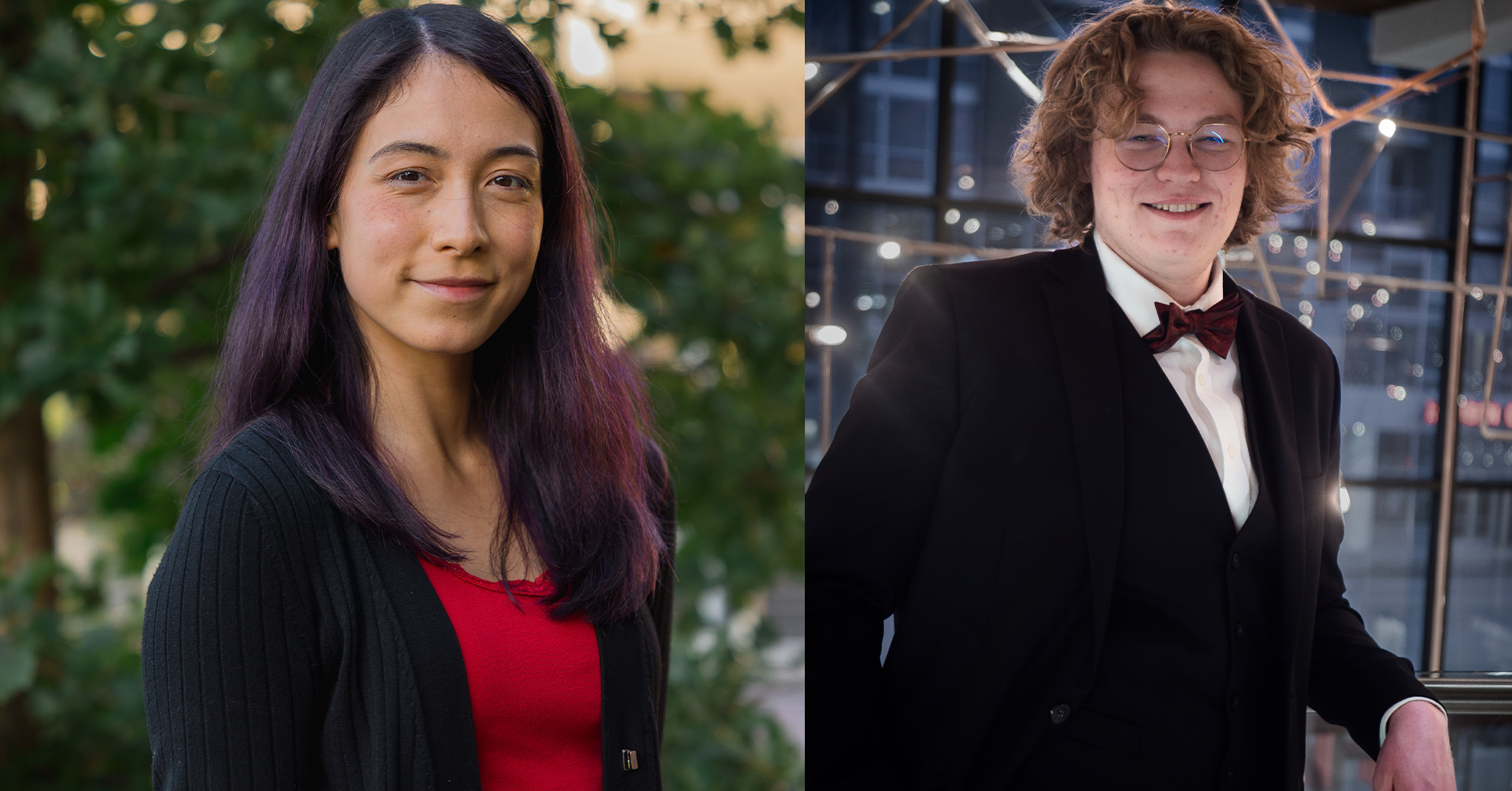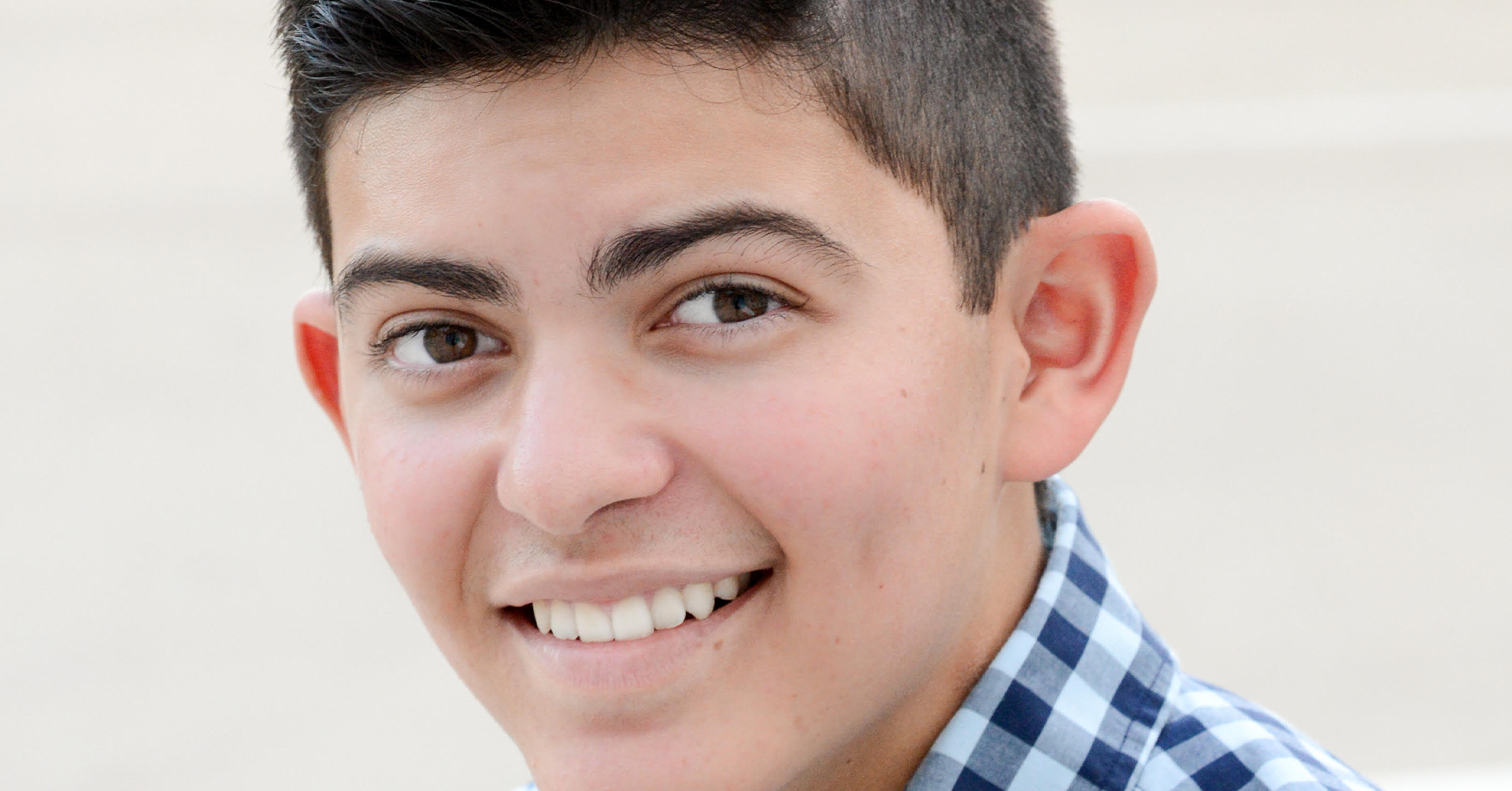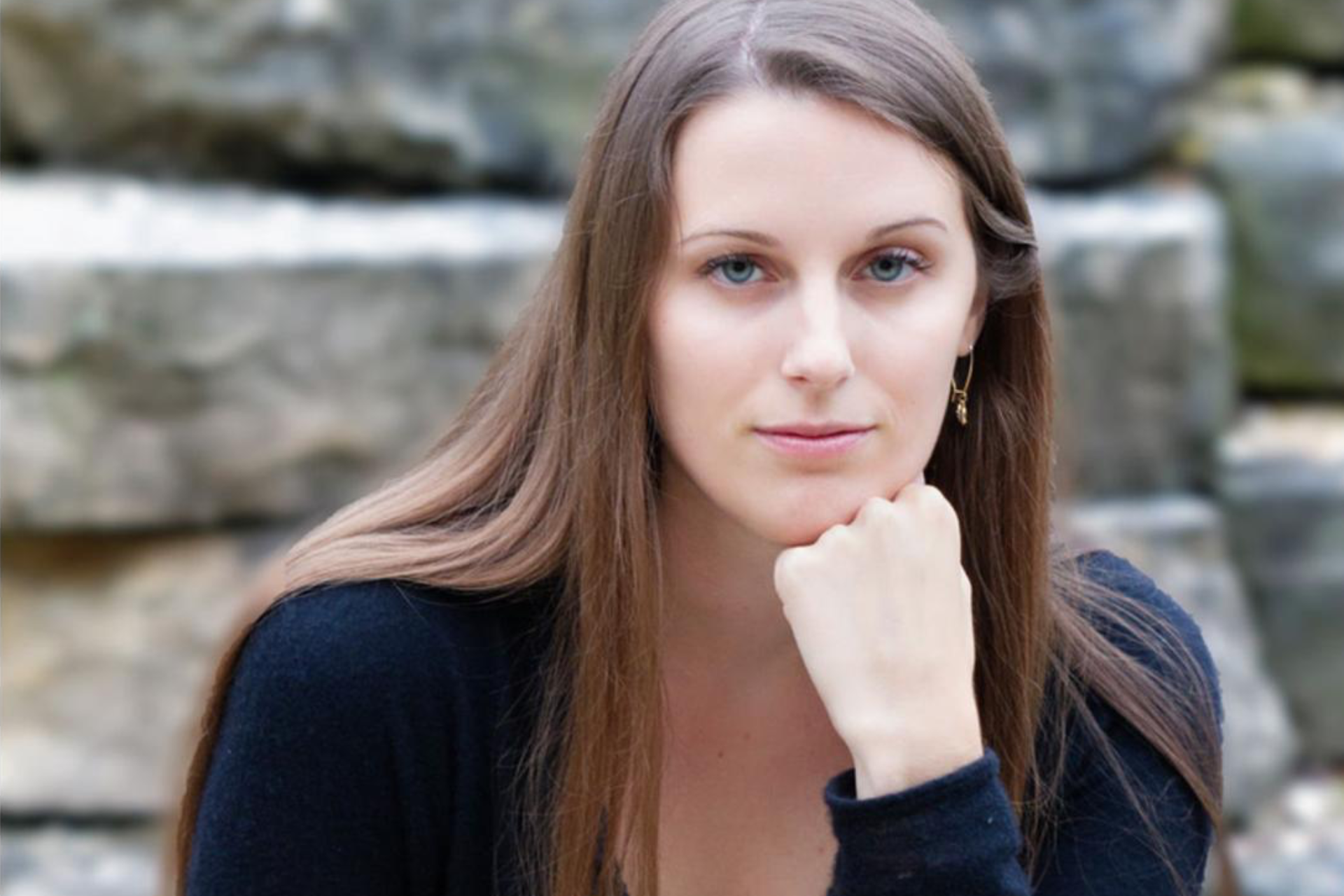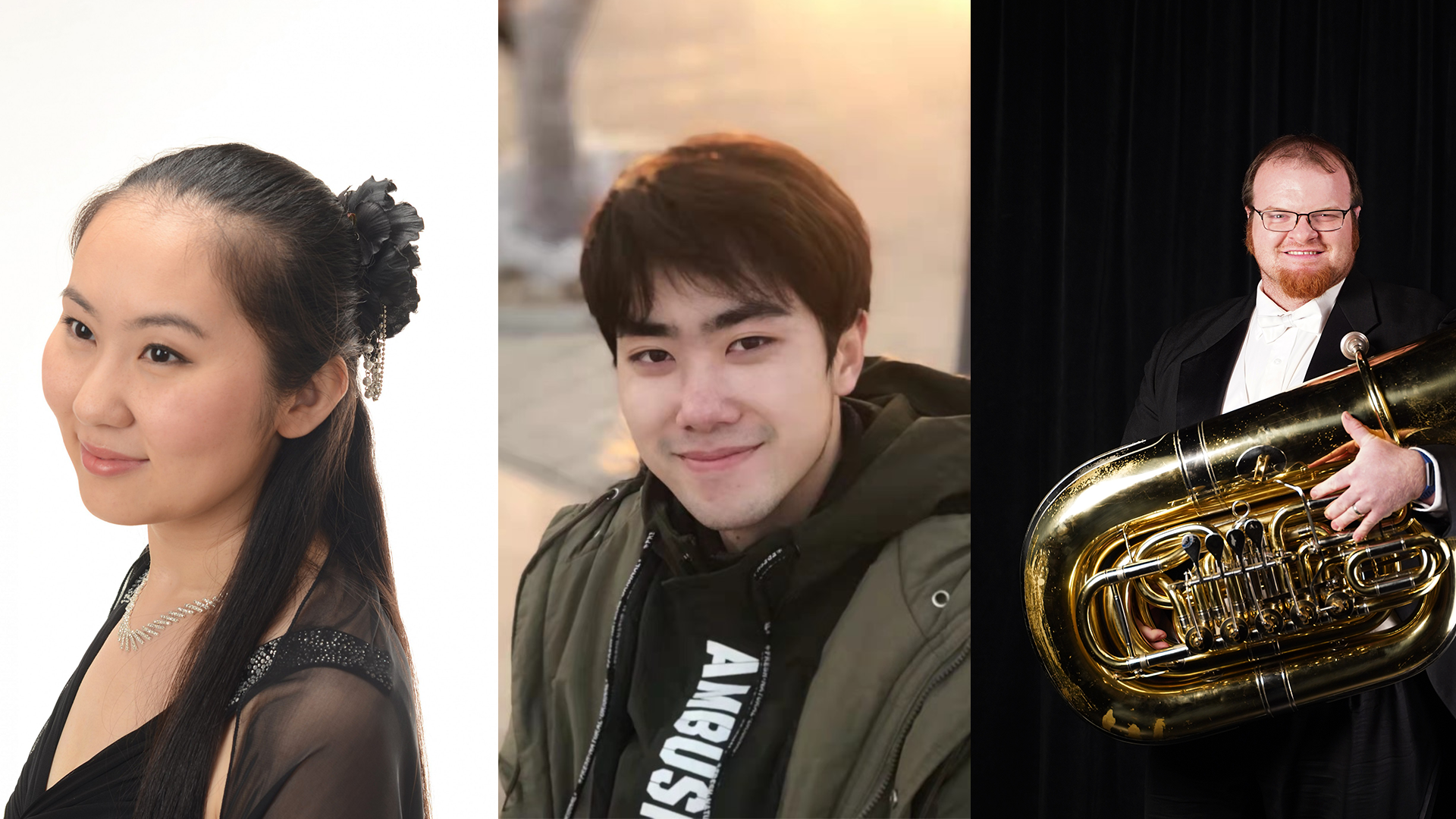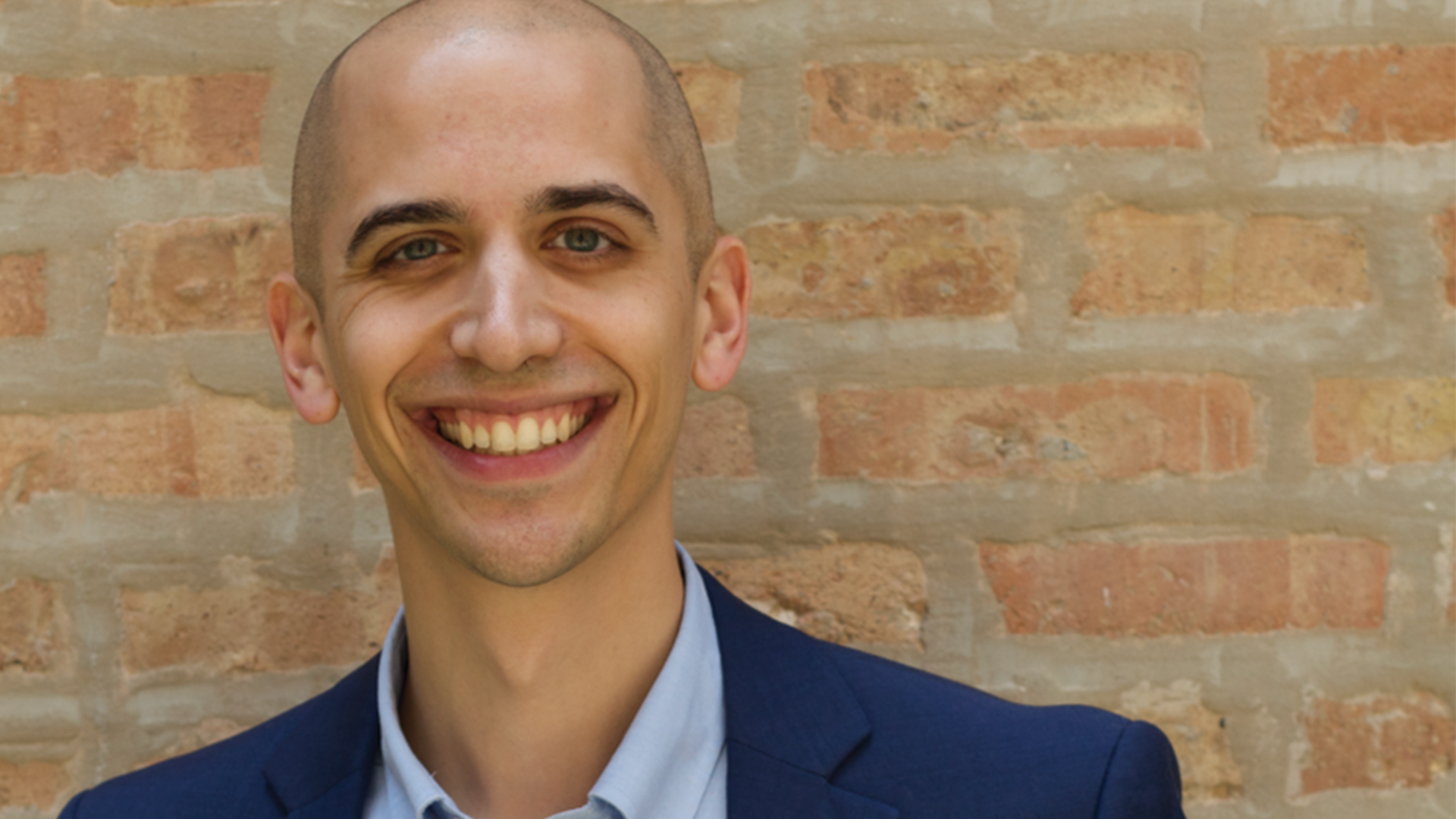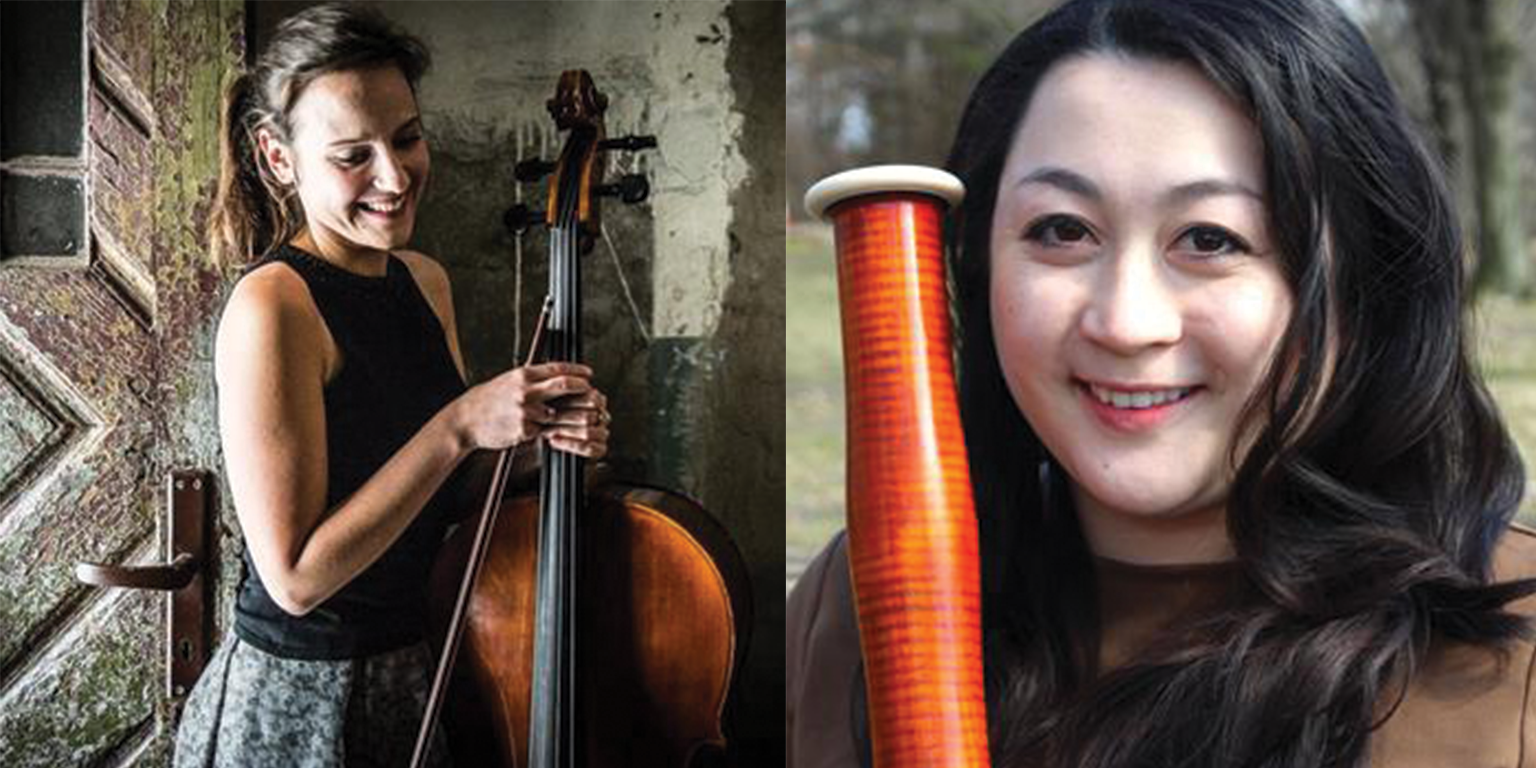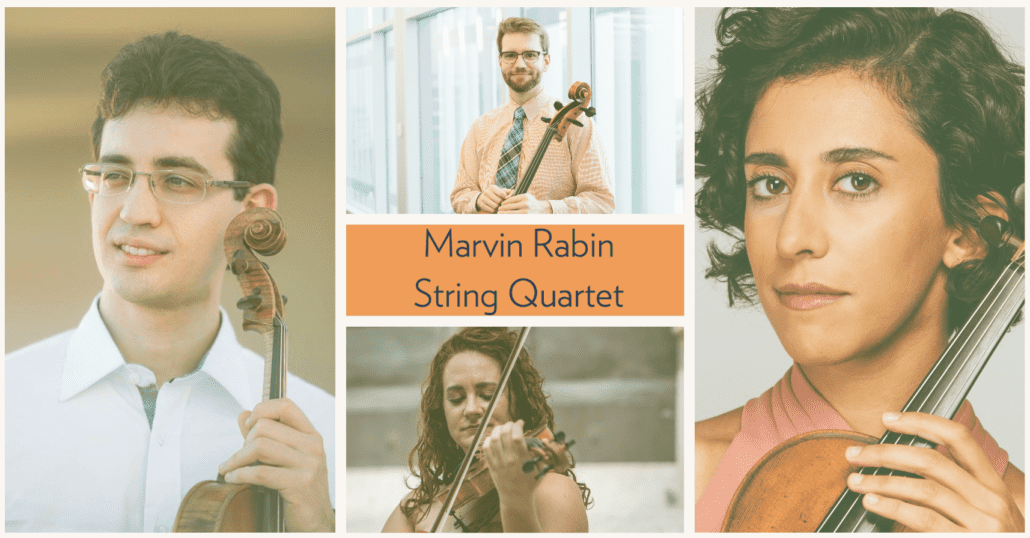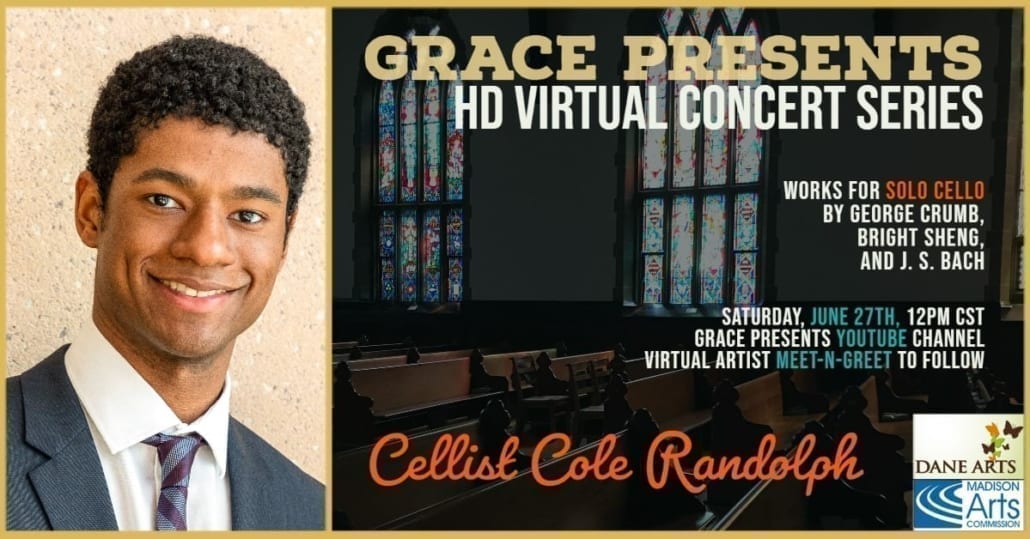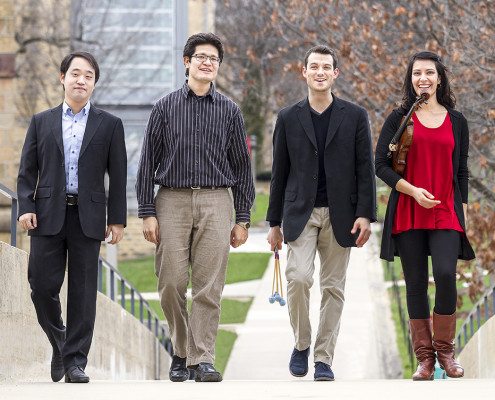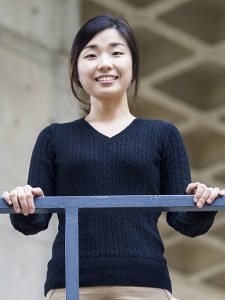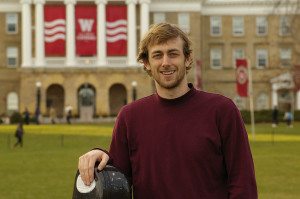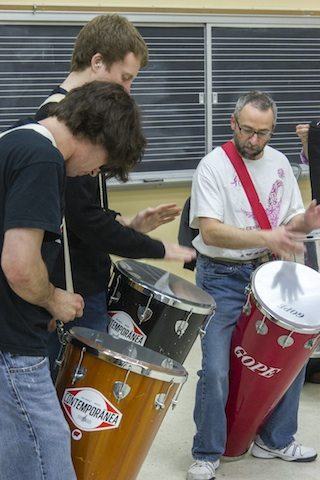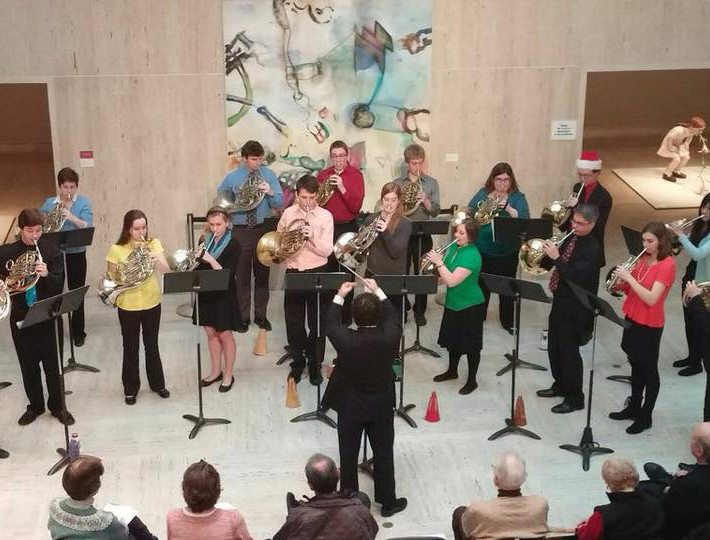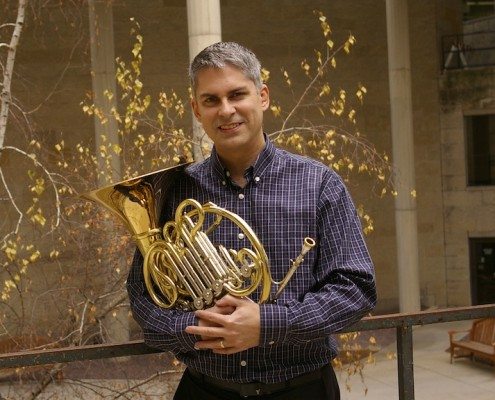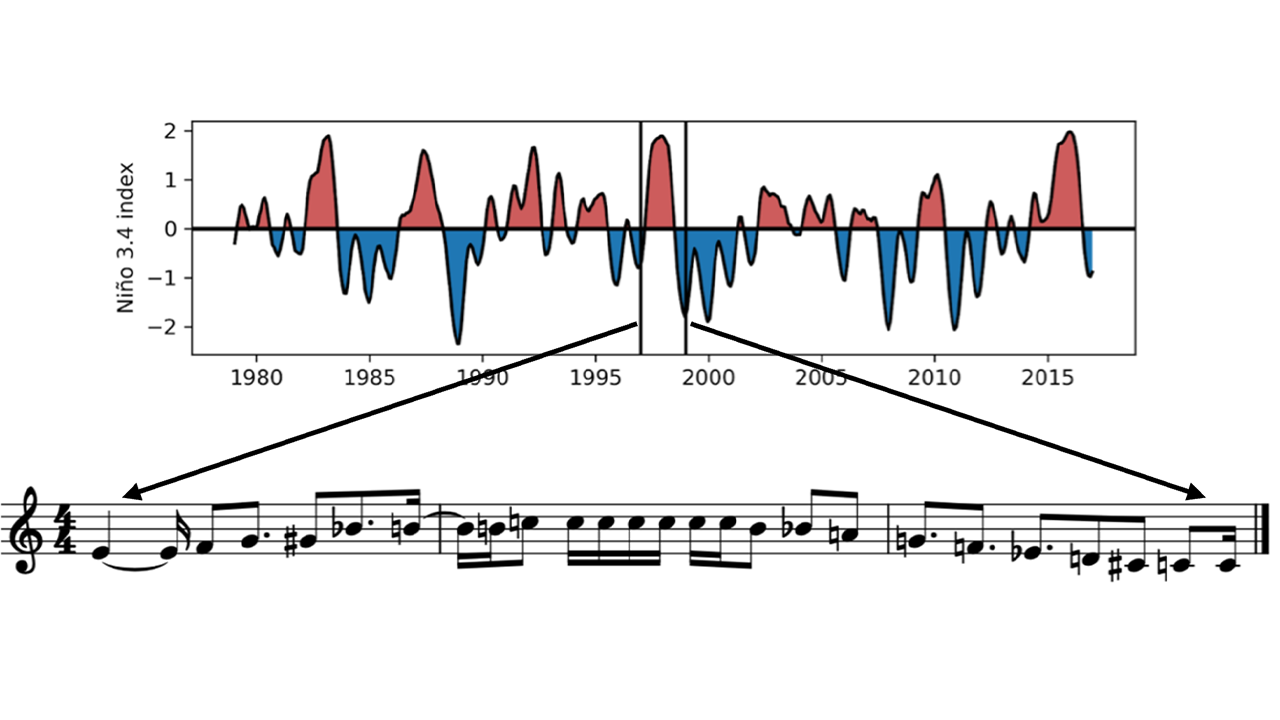
By Chelsea Rademacher
Please respond to the following questions:
| Yes |
No |
|
□
|
□
|
Do you know that a conjunction’s function is hooking up words, phrases, and clauses? |
□
|
□
|
Can you name the 50 states in alphabetical order from memory? |
□
|
□
|
Are you able to read these words because you know your ABCs? |
If you answered yes to any of these questions, chances are you have a song stuck in your head now. That’s because music is a unique educational tool — one that spans time, cultures, and nationalities. It’s also why climate scientist and oceanographer Elizabeth Maroon has teamed up with the Mead Witter School of Music to turn El Niño into an earworm.
What makes El Niño important enough to rise to the level of a Schoolhouse Rock analogy? “El Niño is the temperature in the tropical Pacific,” Maroon offers as a refresher. “It’s important because the temperature down there influences weather everywhere — globally.”
From droughts and heatwaves to monsoons and floods, small variations in temperature can have monumental impacts. But the ripple effects of El Niño don’t need to be a surprise; that’s where Maroon’s research comes in. As a faculty member in the Department of Atmospheric and Oceanic Sciences (AOS) and a core member of the Nelson Institute’s Center for Climatic Research, Maroon studies climate predictability. Just as we can use climate models to predict the weather — What’s the overnight low tonight? Is it going to rain on my parade? — we can use climate models to predict El Niño a few months to a year or two into the future.
“You can make a forecast for El Niño just like you would a weather model forecast,” Maroon explains, “you just run the climate model longer.” (Of course, weather models don’t have oceans in them, so it’s a good thing Maroon knows a thing or two about oceans.)
She pulled a community climate prediction data set for 2023 and analyzed its forecasts. This is where the connection to music begins: “This data set is special in that it’s an ensemble prediction system,” Maroon explains. That means running multiple forecasts all starting from the same observations; in this case, the dataset has 20 forecasts. Each varies slightly at the very first time — “we’re talking one times 10 to the negative 14th Kelvin (1×10-14K). That’s all it takes for the nonlinearities in the atmosphere and the ocean to start to diverge and to give us a wider look at the possible future climates.”
A classically trained pianist, Maroon drew a connection between an ensemble forecast and an ensemble of musicians.
She remembered some work that fellow researchers had done in sonification, or turning numbers and data into notes and sound. To sonify the El Niño forecasts, Maroon hired AOS undergraduate Hunter Glassford, trained him to work with a sonification tool in the programming language Python, and got to work.
“Sonification maps numbers to a frequency in Hertz,” Maroon says. They’re taking it a step further and mapping the numbers to musical notes: A, B, C, D, E, F, G. With traditional sonification, some frequencies might wind up in between notes. For example, A is 440 Hz and B is 493.883 Hz; a data point that maps to 450 Hz would be too high for A, but too low for B (and just a hair flat for B-flat, if we’re getting specific).
While exploring the sonification with Glassford, Maroon also worked with Johannes Wallmann, professor of music and director of jazz studies in the School of Music, to explore climate science with a School of Music student. Maroon and Wallmann hired Ben Ferris, who is a composer, double bassist, and doctoral student, to create an original composition around El Niño, its forecasts, and its interpretation.
“Ben came up with like a lot of creative ways to map the science concepts in a completely original piece,” Maroon says, “And he provided feedback on the direction for the sonification.”
As Glassford mapped numbers to notes, Ferris suggested trying out different scales that he had used in his composition. For the sonification, the team eventually landed on B Lydian (which sounds like this).
Ferris brought in the UW Bridge Ensemble who are turning the science into sound. To demonstrate the sonification, they selected six members from the climate forecast ensemble and sonified them for six instruments in the UW Bridge Ensemble—two violins, one viola, one cello, one piano and one double bass. In addition to the six forecasts that Maroon is representing, she selected a trumpet to represent the observations, what really happened, the “truth.”
Glassford’s final sonifications, as well as Ferris’s new composition, will world premiere live in the Hamel Music Center performed by the UW Bridge Ensemble, during a free event hosted during UW–Madison Earth Fest on April 21 at 7:30 pm in the Hamel Music Center.
So, what does an El Niño forecast sound like? Think back to the data set that generated these notes. The trumpet starts on a single note—representing what really happened in November 2023. A violin joins in on the same note. The trumpet and violin then independently go higher (warmer) or lower (colder), depending on what really happened or what the forecast thought would happen. Now imagine six forecasts playing at once. All of them start on the same first note as the trumpet, but then all the instruments gradually spread out into different melodies.
“The forecasts do not exactly follow the observations, and you can hear that dissonance,” Maroon says. “The further you get away from where you started, the more spread there is, and the more uncertainty that you have in your forecast.”
You’ll be able to hear El Niño and understand its forecasting because of Maroon’s National Science Foundation (NSF) CAREER Award, which is funding both oceanographic research and both student contributors. CAREER Awards are grants that support promising young faculty who show great potential as innovative role models in both research and education — the two areas that the grants focus on.
For Maroon, Earth Signals is the education component; the research half gets further into her academic background of oceanography, specifically looking at how the mountain ranges on the ocean floor affect climate variability.
This is the first year of the grant’s five-year funding. If all goes according to plan, by 2030, Maroon will have supported dozens of students in exploring and researching climate science, honing real-world skills, and getting a one-of-a-kind experience to list on their resumes. She’ll also have helped bring five original compositions to life, offering the public new ways to understand and engage with climate science and oceanography.
“This is going to be a very different way to communicate science,” Maroon says. “Scientific literacy matters, and if we can use music to reach folks who don’t usually think about scientific topics, that’s a win. A better-informed populace is going to be able to understand the scientific premise of things that matter to society.”
Composer’s Statement by Ben Ferris
As an artist, it is a treat to work with scientists, especially folks doing research in climate change, a pressing issue that has broad and devastating effects on the whole world. For this composition, I wanted to look at sonification of musical elements beyond pitch and rhythm. I ended up using dissonance as the element to best communicate with the audience and musicians the feeling of tension between predictions and reality, the discomfort we might feel when things don’t go as we might expect.
I also used improvisation as a large part of the musical composition to sonify the idea of predictions in real-time with the musicians. As a concept for improvised sections, we draw on the music that we’ve already played, but develop it based on our feelings in the moment, which are in turn impacted by the choices of the other musicians. To me, this felt like a great way to experience the scientific processes involved in predictions-lots of inputs impacting what might happen.
